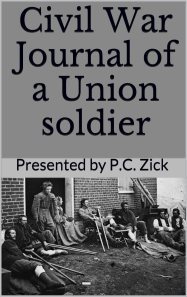P.C. Zick's Blog, page 41
November 13, 2013
Author Wednesday – Lori Crane
Welcome to Author Wednesday. Today I welcome Lori Crane who writes historical fiction. She’s an avid Civil War buff. She also loves researching her ancestry and brings one of her forebears to life in her latest release Elly Hays.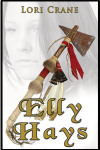 Lori is on a virtual book tour, and I’m pleased she found the time to include Writing Whims on her stop. Read to the end of the interview for information on entering some of the giveaways she’s holding during her tour.
Lori is on a virtual book tour, and I’m pleased she found the time to include Writing Whims on her stop. Read to the end of the interview for information on entering some of the giveaways she’s holding during her tour.
Hello, Lori. I’m so happy you’ve stopped by today. I’ve only read your most recent released, Elly Hays, so I’m wondering if all your books have a common theme or thread?
Yes, my books are set in the deep south of early America and are written about my family. The Okatibbee Creek series begins with Okatibbee Creek, set in Mississippi during the Civil War. The sequel, An Orphan’s Heart, continues through the war and ends in Texas in 1890. The third, Elly Hays, goes back in time to the War of 1812 in Alabama to see how it all began for the Rodgers family. My other series, Stuckey’s Trilogy, though not about family, is about the place I grew up. The first, The Legend of Stuckey’s Bridge, takes place in Mississippi in 1901. The sequels, Stuckey’s Legacy and The Curse of Stuckey’s Gold, which take place in coastal Georgia and back in Mississippi, will be released in 2014.
Why have you chosen to write about this particular theme?
My love for this time and place emerged from genealogical research. Most of my family came to America from England in the early-mid 1600s, so I have four hundred years of American stories to tell. I’ve researched my family tree since before the Internet was invented, and now, mumble-mumble years later, I realize there’s so much more to family history than birth dates and tombstones.
I admire how you’re able to take real people from your geneology and create stories about them. Are you planning to continue writing in the same genre?
I will continue the Okatibbee Creek series as long as I find interesting female ancestors to write about. Since there are more than 9,000 people in my family tree, most likely, yes.
Wow–9,000 people in your family tree–you’ll be writing forever! What’s the best thing said about one of your books by a reviewer?
My favorite review was for Okatibbee Creek and said, “Thank you, Lori Crane for the professional, well researched material, but thank you even more for taking us down through history with a compassion seldom found today.” That really stuck out to me as someone who “got” it. That story was very dear to me as it was my third great grandmother’s life. I tried to write it in a compassionate and thoughtful manner that she would have been proud of, and that review made me feel like I accomplished that.
It’s always a wonderful feeling to know a reader “got” what we set out to accomplish. As a fellow writer, I’m always curious about the advice you give to other writers about receiving a bad review?
As everyone knows, you WILL get bad reviews. One bad review for Okatibbee Creek said there were too many names in the book, and it looked as if I was simply trying to mention all my ancestors. Well, the reviewer was exactly right. While writing the story, I gave a lot of thought to how many names were too many, and I admit there are a lot of names. But I did this for a reason. I did the math and found there are probably more than 200,000 descendants of the family living in America right now, and that number will double or triple within the next twenty years, so I would rather make those 500,000 people happy than to water the story down to please one reviewer. I tried to mention everyone, so if/when a descendant picked up the book, they would see their great grandfather’s name and know where he fit into the story. In my experience, I think the key to dealing with a bad review is to write the story in a way that you stay true to yourself. Then you can shrug off a bad review, knowing you wrote what you did for a reason.
That’s excellent advice. Thanks for giving us a little bit of insight to your stories. Now, for the giveaways!
GIVEAWAYS
1. EBOOK! Every comment on this post during the book tour (November 4-16) will be entered to win an eBook of the first or second book in the Okatibbee Creek series, Okatibbee Creek or An Orphan’s Heart. Your choice of Kindle or Nook. One winner will be chosen. Prize will be delivered by email. Winner will be posted here in the comments on November 17, 2013. Visit each stop of the tour to increase your chances. An eBook will be given away at each stop. Tour schedule is posted at www.LoriCraneAuthor.com.
2. $25 AMAZON GIFT CARD! If you sign up for Lori’s newsletter by November 16, you will be entered into the drawing for a $25.00 Amazon Gift Card. One winner will be chosen. Prize will be delivered by email. Winner will be announced in the newsletter on November 18, 2013. Sign up at www.LoriCraneAuthor.com.
About Lori Crane: Lori is a historical novelist specializing in the 17th-19th centuries of the American south. She is active in historical preservation as a member of the United Daughters of the Confederacy, Daughters of the American Revolution, United States Daughters of 1812, and the Historical Novel Society. She is also a full-time musician and a member of the Screen Actors Guild, American Federation of Television and Radio Artists.
LINKS
Website http://loricraneauthor.com/
Blog http://loricrane.wordpress.com/
Amazon http://www.amazon.com/Lori-Crane/e/B00ATIQW8M


November 11, 2013
P.C. Zick's Author Interview
 Reblogged from Peace, Love and Writing:
Reblogged from Peace, Love and Writing:
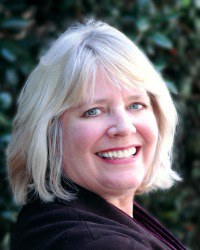



1. Has any life experience influenced your writing that you would like to share?
All of my experiences contribute to what I write. If I feel passionately about a topic, and I want to share the message, not necessarily the specific details, I can frame a novel around that topic. Life inspires me everyday.
2. In 3 sentences, what is your book about?
New Release – An Unlikely Goddess
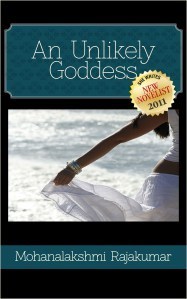 Hello and Happy Veterans Day to all those who have and are serving the United States.
Hello and Happy Veterans Day to all those who have and are serving the United States.
Today I’m happy to announce the release of Mohana Rajakuman’s new novel An Unlikely Goddess, winner of the SheWrites New Novelist Award, 2011. Watch the trailer for the book on YouTube:
Here’s an excerpt from the book:
An Unlikely Goddess
By Mohanalakshmi Rajakumar
…The Hindu goddess, Sita, is said to have been born from the Earth.
King Janaka discovers the beautiful infant and in her beauty, believes in her divinity. He raises her as his own daughter……
Prologue
Unlike her namesake, Sita’s first mistake was being born.
A girl, her mother thought, eyes dark in abject terror. What if he leaves me? She swallowed, increasing the dryness in her post-delivery mouth, the stiches across her abdomen itching. No water. Only ice chips until her bowels passed the tests. Mythili pressed back against the pillows. She closed her eyes, pushing her fingers into the sockets until the darkness was punctuated by bone-white stars. She wished she could as easily tune out the gurgles of the baby in the bassinet beside her.
Yet, even premature and unwanted, Sita was obliviously happy to enter the world, beaming her infant smile at anyone or anything she saw: the nurse, her aunt, her mother’s back, the noxiously-pink cement walls of the Madras hospital in which she found herself. Several pounds underweight, she was otherwise fine—a petite, brown-skinned baby with tufts of black hair crowning a smooth scalp. How could she be expected to know that from her first breath she was, and always would be, a living reminder of her mother’s failure to produce a first-born male heir?
Though swaddled and placed in the bassinet immediately after delivery, her eyes were alive with motion. She blinked up at the faces of passersby, but they were admittedly few, so instead, she followed the blinking lights, the creeping shadows and the occasional appearance of a nurse. Everything about the world kept her busy with delight until sleep washed over her little body
“Look at that smile,” the young nurse said, cradling Sita against her flat bosom.
“Aamam,” Priya, the childless aunt, agreed, rubbing a forefinger across the baby’s somewhat wrinkly face.
Instead of replying, Mythili, Sita’s mother, pulled a see-through blue sheet up to her chin and turned her face away.
Link:


November 8, 2013
Book Review Friday – Two Guys with Pen in the Sunshine State

Florida Keys
Disclosure: As I prepared to write a review on two of my favorite Florida authors, I realized something about the way I write reviews. I’m much tougher on the bestselling authors than I am on Indie Authors. Therefore, I’m filing this disclosure to let you know I am biased and guilty of conflict of interest as an Indie Author and reader. I am tougher on the traditional, popular, and talented authors because those big guys make a substantial living from book sales and peripherals; they have assistants and media relation gurus; they have editors, agents, and toenail clippers. So beware that I’m about to review two of my favorite—and successful—authors who happen to write wacky Florida fiction, and I’m going to be tough on them because with all the help they receive to write and sell their books, there’s very little allowance for error.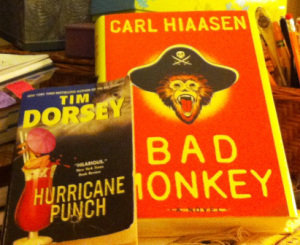
Bad Monkey by Carl Hiassen and Hurricane Punch by Tim Dorsey both contain elements close to my own writing preferences, except I’m not as wild as these two. I met Hiassen twice and both times, he spoke about the outrageous characters and occurrences found in his novels. He said he simply reads the newspaper and sometimes doesn’t go as far as the real life loonies living in the Sunshine State. He received his education on all things crazy in Florida through his job as a reporter—and now columnist—for the Miami Herald. He’s funny in person and on the page. Bad Monkey is his latest offering and it’s full of Hiassen characters and demented plot twists as expected. Perhaps it’s a bit too expected by now. He’s written eight or so novels in this same vein, and I’ve read them all. He’s on the verge of becoming the dreaded formula writer. Despite witty and surprising plot convolutions, I found his new book predictable and slightly disappointing. As far as I’m concerned, the book could have ended 100 pages earlier than it did.
Hiassen breaks one of the rules I adhere to in both my writing and editing for other writers: Don’t use dialect unless you’re very, very good at it. And despite Hiassen’s bevy of helpers, he just doesn’t pull off the Bahamian accent for several of his characters. To the end of the novel, I still struggled to figure out what the island folk were saying.
Here’s an example: “Yah, I hoyt ‘im putty bod but he ain’t dead. I saw ‘im utter night.”
Now here’s my problem. I had to stop and back up my reading to interpret what this actually said. “Yeah, I hurt him pretty bad but he ain’t dead. I saw him other night,” works just as well for me. It captures tone and dialect through word choice and placement without confusing the reader. As a writer and a reader, I value that simple concept the most.
Other than a few other areas of editorial weakness, the novel is pure Hiassen with an arm caught on a chartered fishing boat off the Florida Keys, a spooky medicine woman in the Bahamas, and a demented monkey who once appeared in a movie with Johnny Depp until he couldn’t keep his hands off his genitals. But as one of his greatest fans, I implore Mr. Hiassen to perhaps step out of his lovely Keys home and breathe in the fresh salt air and infuse his brain and fingers with something that stretches his very creative juices. I’d love to read one of his books without expecting and predicting the most demented of plot twists and turns.
Tim Dorsey is another reporter turned novelist, although Dorsey wrote for the Tampa Tribune on the other side of the side of the state. On the back cover of Hurricane Punch, which I just read, there’s a quote from the Boston Globe, “Tim Dorsey’s zany novels are invariable compared with Carol Hiaasen’s.” That’s true they are, but there’s a slight difference. Dorsey’s main character s often are murderous heroes, which makes about as much sense as George Zimmerman winning citizen of the year.
It had been years since I’d read a Dorsey novel because I found his first two books were far too similar. However, I wanted to introduce my husband to two of my favorite Florida writers so I bought three of Dorsey’s books I haven’t read yet and two of Hiassen’s. Hurricane Punch was the first one I read. At first, I wondered why I started reading Dorsey again. I found the plot confusing, and it jumped around quite a bit. But then something hooked me about the book. Perhaps the hurricane season Dorsey creates in this novel intrigued me since my latest work contains an out-of-control hurricane season as well. I also recognized the places he uses in the setting from Tampa to Sarasota to the Everglades and then on up to St. Augustine.
However, with both Hiassen and Dorsey, it’s their despicable and gross main characters who inevitably capture my attention as well as my heart. As unlikely as it seems, I adore Dorsey’s Serge whose murderous ways contain an element of morality—albeit a schizophrenic one—as Serge does what we all have imagined at some point. He makes the jackasses of the world pay, and he helps the victims. Hiassen’s Yancy harasses people in not so kind ways, but always his victims deserve the predicaments created by the former cop turned restaurant roach guard.
Despite some flaws in dialogue choices, plot contrivances, and point of view, both novels made me laugh and created a fan in my husband who’s currently reading his second Dorsey novel. Then he’ll start Bad Monkey. I’ll make a Floridian out of him yet. 


A Journal of the Past


So, I was given a book for review. This is not the typical type of book I read. Fiction is my thing. However this looked interesting and like something I could share with my children. So I agreed to review it, even though I don't review often. I used it as part of my children's schooling in our study of the Civil War.
November 6, 2013
Author Wednesday – Francis Guenette
Welcome to Author Wednesday. Today I’m happy to introduce you to my guest author interview with Francis Guenette, author of Disappearing in Plain Sight, modern fiction with a splash of romance. Francis told me that Disappearing in Plain Sight “shows the characters grappling with the realities of grief and desire only to discover that there are no easy choices–only shades of grey.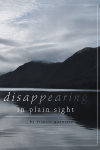 “
“
Hello Francis. I’m so happy to be able to introduce you and your first novel. This is a very exciting time for you, I’m sure. I’m always curious about when authors first allow themselves to say, “I’m an author.” So how about you? When were you first able to call yourself a “writer” or “author?”
Being able to self-identify as a writer or author has definitely been a process for me. And like so many identities I’ve assumed over the years, it’s about becoming comfortable in a new skin. When my first novel had been rewritten several times and edited within an inch of its life, I tried saying the words–I’m a writer. That experiment was done with a limited audience and in a tentative voice. Selling numerous trade paperback books in our small, local market has boosted my confidence. As I plunge into the editing process on my second novel, the sequel to Disappearing in Plain Sight, my voice does rise above an embarrassed whisper when I declare myself a writer and a published author
I’m happy you pushed through that hurtle. I does become easier. Rachel Carson (Silent Spring) said she never chose a subject because as a writer, the subject chose her. Describe a time when a subject chose you.
Just recently, this experience happened for me in quite a vivid fashion. I happened to hear a CBC podcast that described a serious car pile-up outside of Toronto. Survivor guilt affected the people who had been lucky enough to live through that traumatic event. The next day we were invited to dinner with a couple who live nearby. They took us on a boat trip around a few coves at the end of our lake. We got to see, close up, a large mud slide that had come down the side of the mountain two years ago. A story chose me through the juxtaposition of these experiences. It goes like this: a young woman who had survived such an accident, who experienced severe survivor guilt and trauma, makes her way to a family cabin on a remote lake to recover. The slide will play a dramatic role, causing her to fall back on resources she thought she had lost.
I always recommend to writers to simply read the newspaper for ideas. It’s amazing when that happens. Do you set your books in the place you live?
I certainly do. I have found it easier to move characters around a setting I’m thoroughly familiar with, but I know the settings I choose are about more than expediency. I have been molded to a great degree by the place I live–a cabin on the shores of a lake, surrounded by trees and mountains, knowing that a bear could stroll by at any time. These conditions determine what kind of stories I want to tell.
That’s great. It’s also very peaceful and quiet, I assume. That helps me create. Do you have a favorite character that you created?
In Disappearing in Plain Sight, there is a middle-aged woman named Beulah. She and her partner, Bethany run an organic bakery. Beulah is one of my favorite characters to write. She’s got this in-your-face energy. She says what she thinks, and she’s the quintessential tough-as-nails on the outside and heart-of-gold on the inside kind of person. I often find myself chuckling out loud over my keyboard whenever I’m writing in her voice.
I sometimes think characters of mine are a way to write about the person I’d like to be. What is the best thing someone could say about this book?
The best thing that anyone could say about Disappearing in Plain Sight is that the book made he or she think in a new way. I want to challenge readers’ preconceived notions about how the world works. I want readers to finish a book that I’ve written with the conviction that life is, indeed, complicated. I am also partial to people telling me that my book made them cry. Knowing a reader was that invested in my characters and the story makes me want to cry.
I agree–that’s the best, Francis. I’m so happy to get to know you and wish you best-seller success with Disappearing in Plain Sight and its sequel. Please come back when the second novel is published.
 About Francis Guenette: Francis has spent most of her life on the west coast of British Columbia. She lives with her husband and dog and finds inspiration for writing in the beauty and drama of their lake shore cabin and garden. She has a graduate degree in Counseling Psychology. She has worked as an educator, trauma counselor and researcher. Disappearing in Plain Sight is her first novel.
About Francis Guenette: Francis has spent most of her life on the west coast of British Columbia. She lives with her husband and dog and finds inspiration for writing in the beauty and drama of their lake shore cabin and garden. She has a graduate degree in Counseling Psychology. She has worked as an educator, trauma counselor and researcher. Disappearing in Plain Sight is her first novel.
Links to books and social media sites
Blog – Disappearing in Plain Sight
Twitter: @FrancisGuenette


November 3, 2013
The Remarkable Journal of a Union Soldier
 Reblogged from Carol Ervin's Author Site:
Reblogged from Carol Ervin's Author Site:
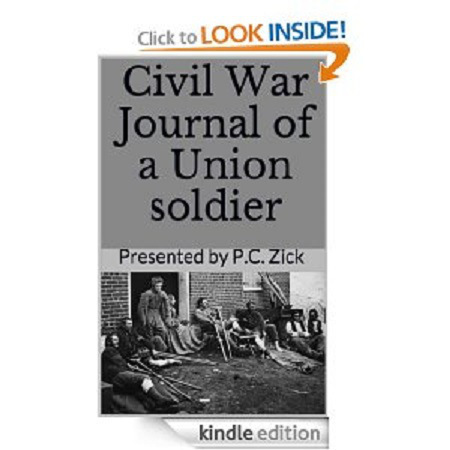
Civil War Journal of a Union Soldier was edited and published this year by P.C. Zick, great-granddaughter of Harmon Camburn, a sergeant in the Second Michigan Infantry from 1861-1864.
Harmon Camburn gave the strongest years of his youth and lost his health in the war between the states. He enlisted at age 19, was made sergeant, survived marches, privation, battles, injury and capture, and was discharged with a wounded lung in 1864.
November 1, 2013
#Book Review Friday – Sebastian by Christoph Fischer
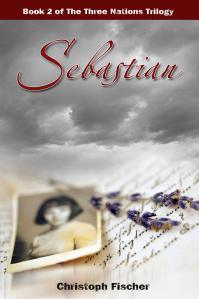 It took me some time to understand why the title of this book is Sebastian. The title character doesn’t appear very often, but his presence is felt in the stories of those–mostly women–around him.
It took me some time to understand why the title of this book is Sebastian. The title character doesn’t appear very often, but his presence is felt in the stories of those–mostly women–around him.
Sebastian, Christoph Fischer’s second novel in the Three Nations Trilogy, is set in Vienna and Galicia in Central Europe. His first book in the trilogy, The Luck of the Weissensteiners, is set in Eastern Europe prior, during, and after World War II. Once again, he’s written a historical account of life as lived by Jews who hide or abandon their cultural and religious heritage because of fear of prosecution, and it also explores the lives of gentiles who are closely aligned with the Jewish community. The lives of the characters, including Sebastian, create a personal view as the war plays out in the backdrop. The war and all its residual effects are felt in the lives of Sebastian’s immediate family and by those that circle him peripherally. No one is particularly religious in both of the books, so it comes as a shock to the characters to be divided along those lines. It forces them to do things they aren’t proud of, such as shunning someone because of their heritage or their association with someone of a particular background.
Not only is war’s turmoil shown through the individuals, but the popular culture is recounted as well. The Glueck family draws Sebastian’s mother, Vera, into experiments with psychoanalysis, which is the “in” thing as Freud emerges on the scene with some outlandish notions about the mind. The occult and seances make an appearance, too. Vera and others seek out meduims to attempt to learn the fate of their husbands and sons sent off to war. Fischer explores these topics and presents both sides as represented by the characters. He doesn’t take a side on these issues, but rather provides the reader with provocative thought to ponder the beliefs presented, which are generally disdained by the scientists of the day.
World War I goes on around and outside of the lives of Sebatian’s extended group, but Vienna remains relatively safe from the war raging just outside its borders.
I’m still thinking of the characters and their inability to communicate with one another, which leads to some unnecessary suffering and missed cues. The novel speaks volumes about this issue as lovers are star-crossed until they finally open up and tell the truth. While the communication doesn’t bring the couple together, it does provide a resolution to the mixed up wires. T
As with his first book in this trilogy, I was shaken out of my ethnocentric self. This time I witnessed the war and its impact by those living through it. The entry of the United States into the fray is nothing more than a blimp on the overall map of the war fought on the soil of Fischer’s setting. The history of the Jews prior to World War I shows that for centuries they feared and suffered at the hands of those in power, particularly in Eastern Europe. Fischer sets the stage for what will happen in the next two decades. Borders and cultures are crossed, bisected, and in some cases, obliterated.
Fischer’s attention to the real life problems caused by war is impeccable. I love that he can relate history without resorting to boring textbook discourse. The individuals’ stories show the harsh reality of what happens to the people actually put at risk during war. We’re not privvy to the high-level meetings of the political puppets holding all the strings, but the impact of those decisions are felt through lack of food and resources to survive.
If you are a lover of history brought to life through characters, I recommend reading Fischer’s novel from the Three Nations Trilogy. You’ll learn as well as become compelled to follow the characters to the final resolution, at least for that small portion of history.
Fischer has now released the final book in the trilogy, The Black Eagle Inn, which I hope to read soon. The third book explores post-World War II life in Eastern Europe.


October 30, 2013
Author Wednesday – Christoph Fischer
 Welcome to Author Wednesday. I’m pleased to welcome back Christoph Fischer to my blog. Christoph writes historical fiction and recently published the third book in his Three Nations Trilogy, The Black Eagle Inn. The Luck of the Weissensteiners, Sebastian, and The Black Eagle Inn are set in Europe during either World War I, World War II, or the post-war period. They offer a unique view of wars that pulled apart countries, cultures, and religions. Christoph uses the individual stories to narrate his historical perspective.
Welcome to Author Wednesday. I’m pleased to welcome back Christoph Fischer to my blog. Christoph writes historical fiction and recently published the third book in his Three Nations Trilogy, The Black Eagle Inn. The Luck of the Weissensteiners, Sebastian, and The Black Eagle Inn are set in Europe during either World War I, World War II, or the post-war period. They offer a unique view of wars that pulled apart countries, cultures, and religions. Christoph uses the individual stories to narrate his historical perspective.


Welcome to Author Wednesday, Christoph. It’s always a pleasure to have you drop by for a chat. You’ve written a trilogy so I wonder
about the similar messages and themes you used in all three books. What message are you trying to convey to your readers?
I try to write about new historical aspects, but also the human factor and how people deal with the trials of their lives. I hope that the importance of families, love, and tolerance shine through my pages. My motivation to write stories derives from a fascination with my chosen subjects, such as a particular era of history, Alzheimer’s, or mental health. I want to pass on what I have learned in the process, and I hope that what was new or intriguing to me will also be that to my readers.
Those are very important themes to express. To get to this point, who or what has the most influence on your writing?
The influences on my writing are more or less in this order: The reviewers and their invaluable feedback; my editors whose critiques can never be tough enough to help me improve; literature teachers in my past whose encouraging words saw me through waves of self-doubt; and great writers whose amazing books make me both jealous and ambitious.
You’ve stated you do have common themes throughout all of your books. What motivated you to write about those things?
I lost both of my parents when I was fairly young, and I guess that is why I am so prone to write about large families rather than about lovers. I had a huge support network at the time and that shows in the set-up of my stories.
Losing your parents at a young age is certainly something that left a mark on your life. You’ve chosen to use that in a positive way through your writing, which is admirable. Is there a broader message you’re expressing since the plots of all three books are in the context of the larger world that have created the individual angst and triumph.
In the widest sense, I am writing about the concept of Nations in my three books. Being a German from the Sudetenland made my father a bit of a foreigner in the eyes of some, and with my odd accent in Bavaria, I felt like that, too. After twenty years of living in the UK, I am branded a German there, but I don’t feel as if I belong to either of the Nations completely. In the first two books, it is the drawing of new borders, establishment of new governments, and blatant racism that help create new and bigger or smaller nations—multi-ethnic or not. In the third book, The Black Eagle Inn, I focus on the personal and how people choose to draw their own borders, and the foundations for all policies that exclude. Above all, it is about how a Nation can and must change.
I was very curious to learn more about post-war Germany, something not covered in our history lessons, yet a most important lesson for a country with such shame and guilt to deal with. I was trying to put into context the many contradictory experiences and comments (racist, chauvinist, or humble and riddled with guilt) which I had picked up in my childhood. By putting myself and my characters through the research and the writing experience, I hope I have come up with something that has interest and relevance for others, too.
What I love about the two books I’ve read is the knowledge I gained about the wars and the individual stories that you created. We don’t understand the impact of the global actions until we look at the individuals who live it. Do you have a favourite character that you created?
I love almost all of my characters, and all for different and valid reasons. Right now, I am thinking of Markus in The Black Eagle Inn. Initially, he is a misguided and selfish gay man who gradually becomes more aware. I was often asked if he is me, and I always rejected the idea because I never did what he does in the book. On longer reflection however, he served as a great tool of reflection on my life. I left a small town because I could not see myself living a gay life in a small and potentially judgmental environment. Like him I chose the safety of a big city instead of fighting in my corner, and like him, I too had irresponsible phases in my life. I thought that Markus was not a character I had put my heart in when I wrote him, but the longer I am reading him, the more he is growing on me.
I’m sure Markus came through your subconsicious in some ways. I always say that a little bit of me exists in all of my characters. What is the best thing said about any of your books by a reviewer?
“I loved Sebastian. A truly inspiring read for anyone!”
The best reviews are short and sweet. What is the one sentence pitch for The Black Eagle Inn?
A great family saga set in post war Germany about political and religious division, revenge, reformation, and redemption.
Those are some of my favorite themes in my books, too. What is the best thing that someone could say about The Black Eagle Inn?
A gripping family saga with an interesting setting of post-war Germany with great characters and some fascinating historical facts and insight.
How was the book conceived in your imagination?
A scene in the Oscar-nominated German film, The Bader Meinhoff Complex, stuck to my mind. It showed the hate of some of these post-war born terrorists towards their parents. I started to imagine life in post-war Germany: the guilty and the innocent living together, the bystanders, the blind witnesses and their offspring. Since much has been written about the Nuremberg Trials, I focused on the people not directly involved but were not totally innocent either. Then the first few characters came to life and soon the story followed.
Who would play you in a film about your life?
Ewan McGregor, please.
Good choice. What are you reading right now?
The Changeling by Christopher Shields, a fantasy story about Fae.
How did you come up with the title The Black Eagle Inn?
The Black Eagle Inn is a restaurant and hotel business in my book. When I remembered that there is a Black Eagle emblem on the official German Flag and also an Eagle on the speaker’s desk in the German parliament, this “accidental symbolism” seemed the perfect choice for a title. The bird theme began on the cover of Book 1(The Luck of the Weissensteiners) and continues in this saga of a blackened bird rising from the ashes.
I’m looking forward to reading it. Is there a book or an author that acts as standard bearer for your writing?
Shantaram by Gregory David Roberts is one of my all-time favorite books with great multifaceted and developing characters. I wonder with all of my characters if they could be part of his books. Lionel Shriver (We Need to Talk About Kevin) has a bite and raw honesty that I also aspire too in my books.
Christoph, it’s always a pleasure. Thank you for writing such important historical pieces.
 About Christoph Fischer: Christoph was born in Germany, near the Austrian border, as the son of a Sudeten-German father and a Bavarian mother. Not a full local in the eyes and ears of his peers, he developed an ambiguous sense of belonging and home in Bavaria. He moved to Hamburg in pursuit of his studies and to lead a life of literary indulgence. After a few years, he moved on to the UK where he still resides today. Besides the Three Nations Trilogy, he has written several other novels which are in the later stages of editing and finalization.
About Christoph Fischer: Christoph was born in Germany, near the Austrian border, as the son of a Sudeten-German father and a Bavarian mother. Not a full local in the eyes and ears of his peers, he developed an ambiguous sense of belonging and home in Bavaria. He moved to Hamburg in pursuit of his studies and to lead a life of literary indulgence. After a few years, he moved on to the UK where he still resides today. Besides the Three Nations Trilogy, he has written several other novels which are in the later stages of editing and finalization.
Links
http://www.facebook.com/WriterChristophFischer?ref=hl
http://www.christophfischerbooks.com/
http://writerchristophfischer.wordpress.com/


October 28, 2013
#Civil War – From Detroit to Pittsburgh
I love this excerpt from my great grandfather’s Civil War Journal. He joined the Union army two weeks after the first shots at Fort Sumter and became a member of the 2nd Michigan Infantry. This is his description of the first days of travel to reach Washington, D.C. for orders. Since I was born seventy miles west of Detroit and now live twenty miles northwest of Pittsburgh, I very much enjoy his descriptions.
By Harmon Camburn from Civil War Journal of a Union Soldier
“June 7 – Landing at an early hour, coffee, bread, and meat were served to the men while standing in the street.
Many citizens of the place came to see the Michigan boys and give them words of encouragement.
A company of juveniles, fully armed and equipped, paid the regiment a visit. The little fellows conducted themselves in true military style and gave the 2nd Michigan three rousing cheers as a send off.
Leaving Cleveland by the Pittsburgh Road, we passed through Hudson, Ravenna, Wellsville, and other places where large crowds of people had congregated to meet and cheer us on our way. At all stopping places, the patriotic Ohio ladies were present with coffee, pies, cakes, sandwiches, lemonade, fruits, bouquets and whatever their loyal hearts suggested would be encouraging to those they regarded as their defenders. A day of excitement among these Ohio towns, relieved by long rides past oil derricks and iron foundries, terminated in the evening at Pittsburgh, Pennsylvania. Here great crowds of people were ready to do anything that seemed necessary, and many things that were unnecessary. Pocket books were open to buy whiskey to fill canteens or bread to fill haversacks. Open generosity was the rule. Real wants were not calculated. To express a wish was to have it gratified on the spot. The need of caution against the universal desire to do something for the boys was very apparent, and the road to Harrisburg was taken with very little delay.
June 8 – This bright and beautiful morning dawned upon us amid the Allegheny Mountains. To boys who had been reared in the comparatively level state of Michigan, the wild and rugged scenery, and the towering hills of Pennsylvania were something to gaze at with awe and wonder. In the presence of these majestic piles of earth and rocks, the individual man shrinks into nothingness, and the immensity of the universe is increased in our estimate.
A little west of Altoona, the railroad runs on the mountainside in the shape of a horseshoe. On the inside of the curve, there is a sheer descent of three hundred feet, while on the outside the rocks rise perpendicular to a great height. Coming upon this spot without warning, with the train rushing along at full speed, one instinctively clutches the hair on his head as if to keep it from flying away.
The ever-varying landscape, as the train sped past lofty mountains, through green valleys and over flashing streams, beguiled the time till Harrisburg was reached in the afternoon.
The Pennsylvania Buck Tail Regiment had a camp here called Camp Curtain after the governor of the state.
Each member of this regiment wore in his hat the tip of a deer’s tail, and was supposed to have killed the deer himself.
At Camp Curtain, our tents were pitched for the first time. Here we spent our first night under canvass. The regiment had brought guns from Michigan, but no cartridge boxes or munitions. Both of these were issued to us here, completing our equipment. Camp duties being all attended to everybody went for a cool bath in the Schuylkill River. Thus refreshed after our long ride in the cars, we slept soundly regardless of our, to us, novel positions.






